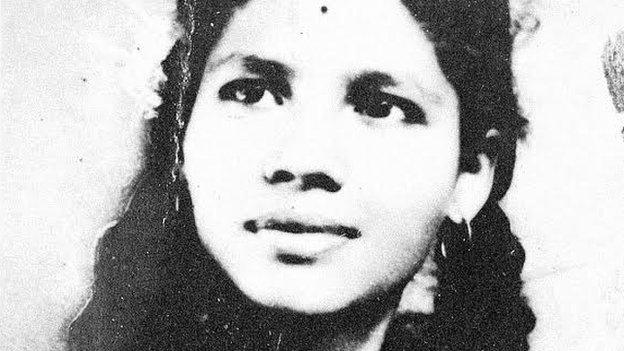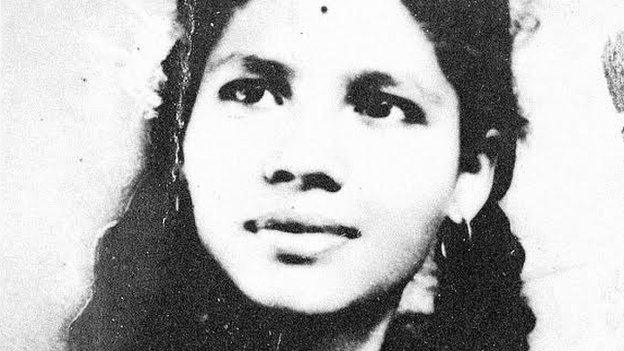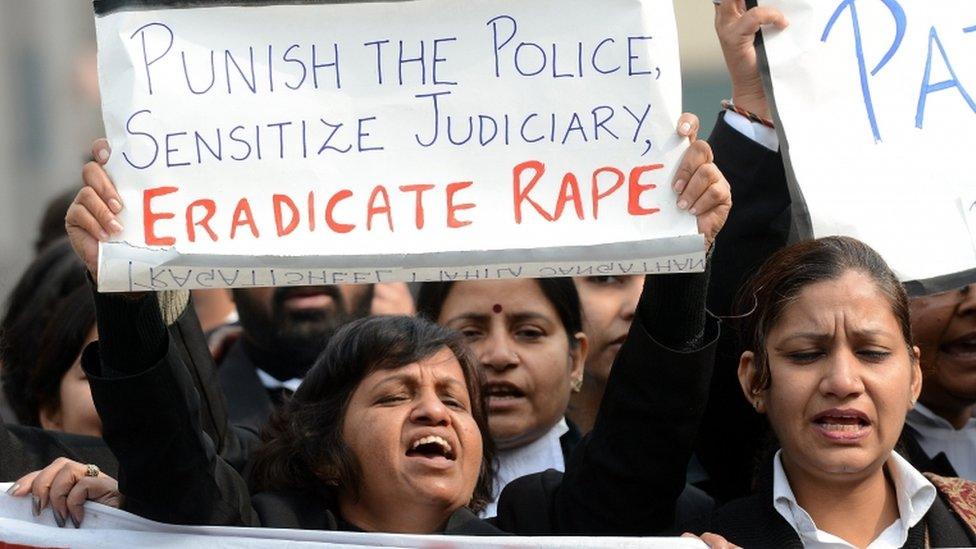Aruna Shanbaug: Doctors recall raped nurse's 42 years in hospital
- Published

Aruna Shanbaug was 25 years old when she was brutally raped
Aruna Shanbaug spent 42 years in a persistent vegetative state after being raped and strangled in a Mumbai hospital. Her case sparked a debate about India's euthanasia laws. BBC Monitoring's Vikas Pandey spoke to the doctors who treated her over the years before her death on 18 May.
Taking care of Aruna Shanbaug was "not a task, but a responsibility", says a senior doctor at the King Edward Memorial (KEM) Hospital in Mumbai.
Dr Avinash Supe remembers how different generations of doctors, nurses and other staff members took care of Ms Shanbaug for more than four decades.
She was left with severe brain damage and paralysed after the 1973 attack by a ward attendant in the Mumbai hospital where she worked as a nurse.
Dr Supe says so much changed around Ms Shanbaug in 42 years, but the hospital's "care for her remained the same".
"It was always like taking care of one of our own. We stayed committed throughout her stay at the hospital. The hospital's infrastructure, facilities and wards changed in the past four decades but her presence was constant," he remembers.
Her routine also remained unchanged for more than 40 years.
"Every morning, they [doctors and nurses] used to care for her. The day would start with a medical check-up, followed by feeding food and medicines. The rest of the day would be spent in ensuring that she is moved to avoid bed sores. She was looked after so well that she did not have any bed sores in such a long period," he says.
He adds that the doctors and nurses deserve praise for giving her the best possible care.
'Family member'
Another doctor at the hospital remembers how Ms Shanbaug had become a "family member" for the hospital's staff.
"She was one of our own. Her fight was tough and we are glad that we stood by her in all those years," he says.
Her case has sparked a debate about India's euthanasia laws. In 2011 the Supreme Court rejected a plea to allow her to die.
Dr Supe says the doctors at the hospital had left the decision to the court and only concentrated on giving her the best care possible.
"We did not allow ourselves to be dragged into the debate. We had a responsibility to treat her and we did that," he says.
Will this case have any impact on the euthanasia debate in the country?
He says that it is for the courts and lawmakers to decide if the country needs to change its euthanasia laws.
"For me, one of our own was brutally attacked and that too at her workplace. That's the issue I want people to remember - women's safety at work places," he adds.
The hospital's care has also been praised on Twitter.


- Published18 May 2015

- Published7 March 2011
- Published5 January 2013
